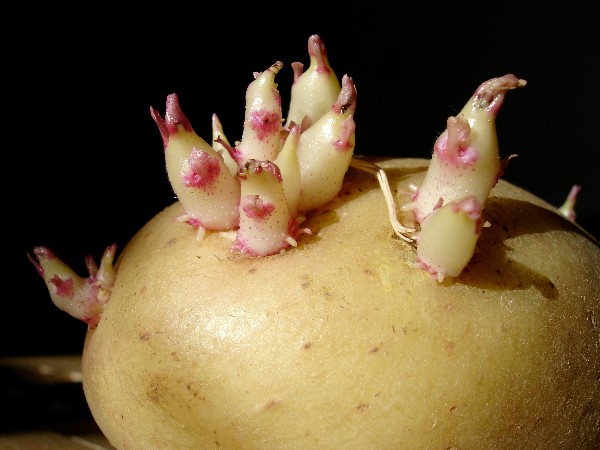With proven health benefits, a fairly low price and endless ways to cook, it is easy to see why potatoes are some of the most popular vegetables known. For this reason, it is no wonder many of us forget about a bag of potatoes in the back of our pantry or to buy more than we end up using in a short time. This can lead many to ask, "Can potatoes go bad?"

Do Potatoes Go Bad?
The truth is, potatoes do eventually go bad, but the question is when. If you store your raw potatoes properly, they can last several weeks. For the best shelf life, place them in a dark area that is about 45-54°F or slightly warmer than your refrigerator. In these conditions, your potatoes may last for up to 3 months.
If you decide to put your potatoes in the fridge because you don’t have a cool, dark root cellar, you can expect them to last about a month. Don’t be surprised if they turn dark when cooked and have a bit of a sweet flavor. You may be able to offset this by keeping them out at room temperature for a few days before cooking.
You may also want to know how long a raw, cut potato can last. If you cover it completely with cold water, you can expect it to last about 24 hours. For cooked potatoes, if you are keeping them in the fridge, you should eat within 3-5 days. If you are freezing them, you can expect them to last as long as a year.
Signs That Potatoes Go Bad
Do potatoes go bad? Yes. There are several ways to tell if your potato is bad, such as:
Green Potato
If you notice the potato is green, that is if the green is on the skin as patches or in the flesh, it has gone toxic and should not be eaten as it can cause illness or even death. Potatoes with any green colorations should be tossed and not eaten.
Sprouted Spuds
If they have been stored for a long time at warmer temps, you may see sprouts. They tend to sprout between 1-4 months after being harvested. Some sprouted potatoes, especially those that are still firm, may be okay to eat.
Solanine is the same toxic substance that can turn your potatoes green and is in the sprouts. If you cook a sprouted potato, be sure to remove the sprouts. Those potatoes whose sprouts are long and the spud looks wrinkled and is soft, should be avoided as they are in advanced stages of deterioration.
Sunken Potatoes
When the spud is sunken or wrinkled, it is likely too wet or too dry and is spoiled. Don’t eat these potatoes. So do potatoes go bad? Yes.
Deep Cracked Potatoes
Those that have cracks in the size of thumb-nails show signs of poor handling and storage and shouldn’t be eaten. These potatoes may have fungus, mold or other harmful microorganisms in it. Choose potatoes that look healthy. If the cracks are surface cracks and small, looking healed, you may choose to eat the spud anyway, as these likely occurred during the growing process.
Moldy Potatoes
This indicates they have spoiled and the mold could be harmful to you. These have often been damaged by being bruised or cut and that is where the mold forms. Don’t eat these potatoes.
Bitter Tasting Potatoes
These spuds likely contain solanine and this is a poisonous substance. If they are bitter, toss them out.
How to Store Potatoes Properly
Do potatoes go bad? Yes. So you need to store them properly to avoid toxicity and spoilage. The following will give you some ideas of how to best store your potatoes:
- Store with some humidity to help you steer clear of dehydration as the potatoes will be withered and wrinkled.
- Make sure the area is dark to avoid the potato turning green. Greening is from artificial light, indirect daylight and sunlight.
- The right temperature will vary from 46-54°F to 41-48°F. Generally, higher than 36°F and lower than 54°F is about right. This usually means a cellar, pantry basement or cool garage. If you don’t have these options, you can choose the refrigerator turned to a slightly higher than normal temperature. Too low a temper (32-36°F) may make the starch in the potatoes turn to sugar, causing them to have sweet taste.
- To keep a potato best, provide fresh air, by storing in a well-ventilated area. Don’t use airtight containers because there will be too much moisture and weight.
- Don’t wash your spuds before your store them.
- Store away from your onions. Onions can cause your potatoes to sprout quickly.
- Don’t store with fruit such as bananas. This can encourage the spud to sprout faster because fruit emits ethylene gas which makes spuds ripen faster.